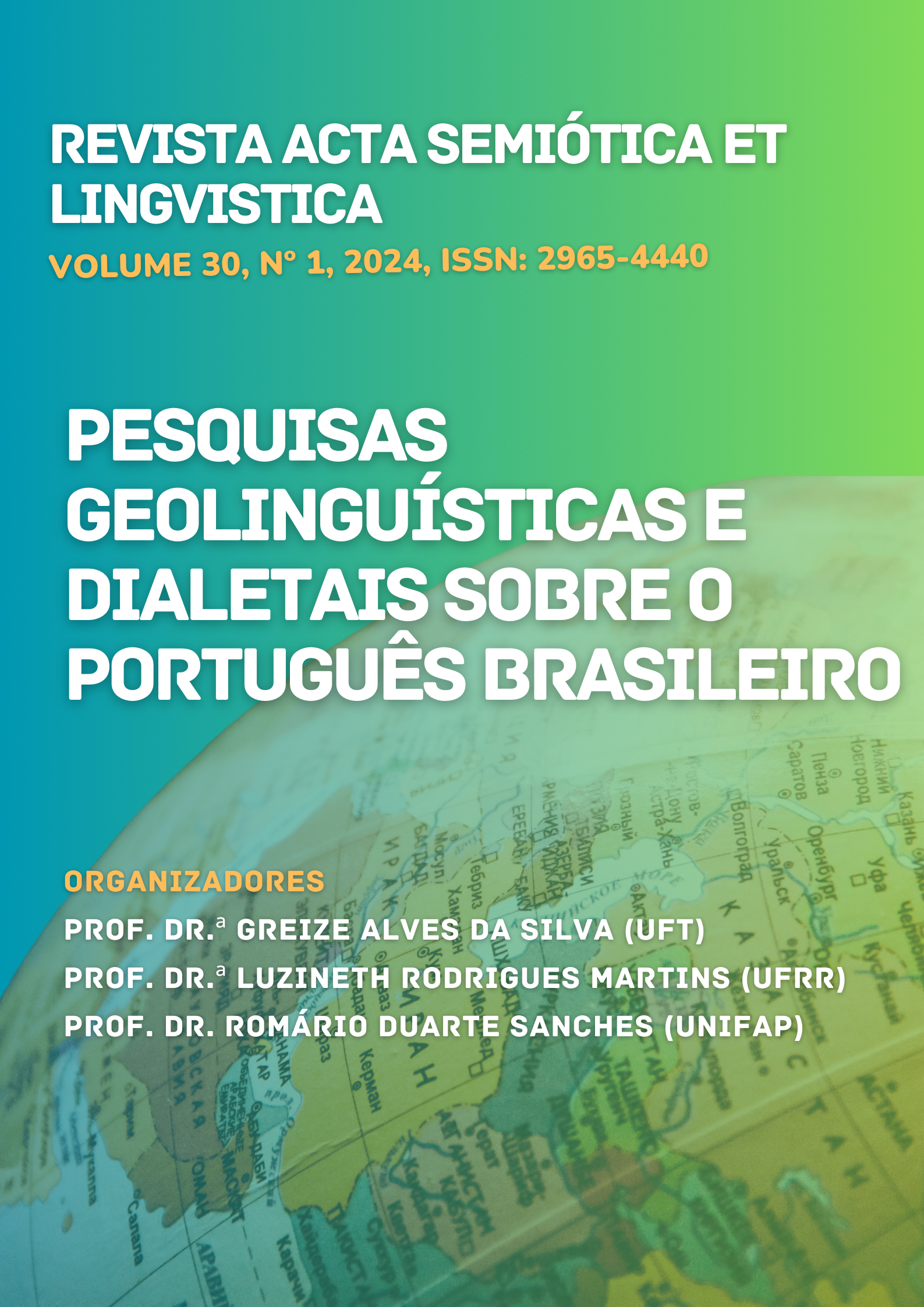REFLECTIONS ON DATA COLLECTION AND INTERACTION IN SOCIO-DIALECTAL RESEARCH
GUIDELINES FOR FIELD RESEARCHERS
DOI:
https://doi.org/10.20873/actasemiticaetlingvistica.v30i1.19039Palabras clave:
Socio-dialectal research, power relations, observer's paradoxResumen
There are many discussions revolving around issues concerning the primary stage of work for dialectologists and Sociolinguists: on-site data collection and face-to-face interaction with the informant, as well as the spontaneity of speech considering the presence of the interviewer in an interview situation. This study aims to provide a brief theoretical contribution on the subject, illustrated with examples extracted from data collection for the Topodynamic and Topostatic Linguistic Atlas of Tocantins, in order to propose some guidelines for future field researchers, with the perspective of minimizing what is referred to as the "observer's paradox" in socio-dialectal research.
Citas
ALTHUSSER, L. Posições. 1 ed. Rio de Janeiro: Graal, 1978.
ALTHUSSER, L. Aparelhos Ideológicos de Estado. Rio de Janeiro: Graal, 1992.
BOTASSINI, J. O. M. Crenças e Atitudes Linguísticas: um Estudo dos Róticos em Coda Silábica no Norte do Paraná. 2013. Tese (Doutorado em Estudos da Linguagem) – Universidade Estadual de Londrina, Londrina, 2013.
BRAIT, B. O processo interacional. In: PRETI, D. (Org.). Análise de textos orais. São Paulo: Humanitas, 1999, p. 189-214.
BRANDÃO, S. F. A Geografia Linguística no Brasil. Série Princípios. São Paulo: Ática, 1991.
BROWN, P.; LEVINSON, S. Universals in Language Usage: Politeness Phenomena. In: GOODY, E. (Ed.). Questions and Politeness: Strategies in Social Interaction. Cambridge: Cambridge University Press, 1978.
CÂMARA JR., J. M. História da Lingüística. 6 ed. Petrópolis: Vozes, 2006.
COMITÊ NACIONAL DO ATLAS LINGUÍSTICO DO BRASIL. Ata da XVII Reunião do Comitê Nacional do Projeto ALiB. São Luiz (fotocopiada – circulação restrita), 2004.
FARACO, C. A. Linguística Histórica: uma introdução ao estudo da história das línguas. São Paulo: Parábola Editorial, 2005.
FOUCAULT, M. Vigiar e Punir: História da violência nas prisões. Tradução de Raquel Ramalhete. Petrópolis: Vozes, 1994.
FOUCAULT, M. Microfísica do Poder. Organização de Roberto Machado. 13 ed., Rio de Janeiro: Graal, 1998.
FOUCAULT, M. Poder e saber. In: FOUCALT, M. Estratégia, poder-saber. 2 ed., Rio de Janeiro: Forense Universitária, 2006, p. 223-240.
JABERG, K.; JUD, J. Der Sprachatlas als Forschungsinstrument, kritische Grundlegung und Einführung in den sprach- und Sachatlas Italiens und der Südschweiz. Halle/Saale: Niemeyer, 1928.
LABOV, W. Padrões Sociolinguísticos. Tradução de Marcos Bagno, Maria Marta Pereira Scherre e Caroline Rodrigues Cardoso. São Paulo: Parábola Editorial, 2008 [1972].
LAMBERT, W. W.; LAMBERT, W. E. Psicologia social. Tradução de Álvaro Cabral. 3 ed., Rio de Janeiro: Zahar, 1972.
MORALES, H. L. Sociolingüística. 3 ed., Madrid: Gredos, 2004.
POP, S. La Dialectologie: Aperçu et Méthodes dEenquêtes Linguistiques. Louvain: Chez l'auteur, 1950.
SILVA, G. A. da; AGUILERA, V. de A. Os atlas Linguísticos Brasileiros e o Inquiridor: em Busca de uma Metodologia Adequada. SIGNUM: Estudos da Linguagem, n. 12, v. 1, p. 317-341, 2009. Disponível em: https://www.uel.br/revistas/uel/index.php/signum/article/view/4247/4607. Acesso em: 17 jan. 2022.
SILVA, G. A. da; BORGES, P. A. Presença vs Ausência de Traços de Ruralidade no Léxico Tocantinense. Revista do Instituto de Estudos Brasileiros, n. 72, p. 83-105, 2019. Disponível em: https://www.revistas.usp.br/rieb/article/view/157030. Acesso em: 2 ago. 2022.
TARALLO, F. A pesquisa Sociolinguística. 5 ed., São Paulo: Ática, 1997.
THUN, H. Variação na Interação entre Informante e Entrevistador. Tradução de Cléo Vilson Altenhofen e Felipe Neckel. Cadernos de Tradução, n. 40, p. 82-107, 2017 [2005]. Disponível em: https://seer.ufrgs.br/cadernosdetraducao/article/view/87180/50001. Acesso em: 3 fev. 2022.
VASCONCELOS, C. A.; YIDA, V.; GHOLMIE, M. R. S. Estratégias para a Obtenção de Respostas nos Inquéritos do ALiB: a questão 054 (aftosa) nas capitais do Centro-Oeste e Sudeste. SIGNUM: Estudos da Linguagem, n. 21, p. 32-54, 2018.
VENY, J. Introducción a la Dialectologia Catalana. Barcelona: Biblioteca Universitària, 1986.
WEINREICH, W.; LABOV, W.; HERZOG, M. Empirical Foundations for Theory of Language Change. In: LEHMANN, P; MALKIEL, Y. (Eds.). Directions for Historical Linguistics. Austin: University of Texas Press, 1968, p. 95-188.







